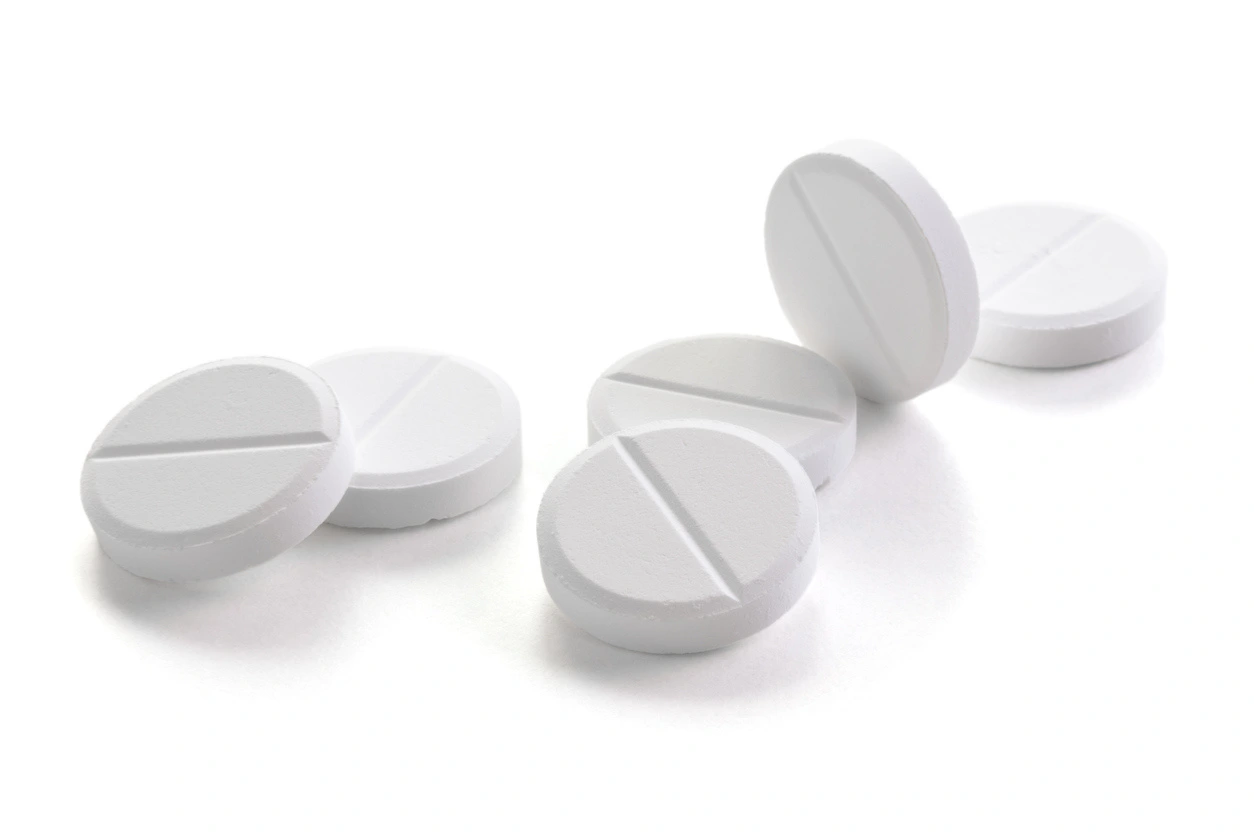Why Detoxing From Alcohol Is Important
Alcohol detox is the first stage when it comes to treating alcoholism. When becoming dependent on alcohol, the body learns to adapt to the presence of the substance, leading to tolerance; this means that in order to achieve the effects that alcohol brings, more of the substance needs to be consumed.
In addition to the above, it’s essential to understand that alcohol affects the chemistry of the brain, causing an imbalance in its neurotransmitters and impacting a person’s mood and behaviour. When combining tolerance and brain chemistry changes, you have a recipe that makes addiction thrive, as alcohol becomes an essential tool to function normally.
When detoxing from alcohol, you will likely experience withdrawal symptoms; the effects of this can range from minor discomfort to more severe health risks and are often based on how strong the dependency on alcohol is.
Through Action Rehab, all detox programmes are carried out under medical supervision to ensure that any potentially harmful withdrawal symptoms are urgently seen.
Once an alcohol detox has been thoroughly carried out, the chemical balance in the brain will be restored, improving mental clarity and focus, which is essential for the next stage of a typical alcohol rehab programme.
Choosing The Right Alcohol Detox Centre
A CQC-registered inpatient or outpatient rehab centre usually performs an alcohol detox. Action Rehab can help you find the best rehab centre that meets your requirements.
There are several factors to consider when finding a suitable facility, such as:
- Quality of Staff: Having experienced and well-trained staff is essential to receiving good quality care. Any alcohol detox centre should have a team of doctors, nurses and therapists who are all on hand to provide around-the-clock care.
- Solid Reputation: The Care Quality Commission’s rating of good to outstanding is a suitable reference when assessing the reputation of a UK-based rehab centre.
- The Right Environment: Finding somewhere that has a calming and welcoming environment can be significant in enhancing the detox process.
- Exceptional Client Success Rates: The number of patients who are successfully treated at a rehab centre is vitally important, and this is why we always insist on knowing this data before recommending any centres.
A Typical Alcohol Detox Timeline
Although some experiences can be different to others, it is possible to create an example breakdown of a typical alcohol detox.
Please bear in mind that the duration and severity of specific symptoms can be longer depending on the individual health and how long they have been addicted.
-
- Stage 1 – Mild Symptoms Start to Emerge (6 – 12 Hours After Last Drink)
In the very early stages of detox, some mild withdrawal symptoms may be felt; this includes things like increased anxiety levels, dizziness, nausea, headaches, shaking or insomnia. A lot of the symptoms listed may sound similar to what many experience during a hangover, except it’s just the body adjusting to not having the alcohol intake that it craves.
-
- Stage 2 – Symptoms Start to Increase (12 – 24 Hours)
The symptoms that started in the first few hours may begin to intensify at this stage. Possible hand tremors, increased sweating, and elevated blood pressure are just some of the symptoms that can be experienced. Hallucinations do sometimes occur but are not very common and are not seen as severe.
-
- Stage 3 – Withdrawal Symptoms Peak (48 – 72 Hours)
This stage is often the most challenging and dangerous part of detox. This is where more attention will be given to the patient to ensure that any severe symptoms are dealt with as quickly as possible.
Delirium tremens (DTs) is a severe and life-threatening condition that can cause body tremors, irritation, agitation, confusion (delirium), excessive sleeping, increased heart rate and hallucinations. DTs is a rare condition and doesn’t occur in the vast amount of people who withdraw from alcohol, but whenever it does happen, it’s vitally important that immediate medical attention is given.
Other severe symptoms experienced during this stage can include a faster heartbeat, confusion and hallucinations, although these are also quite rare, affecting just a small percentage of people.
-
- Stage 4 – Symptoms Change (3 – 7 Days)
During this period, it’s a wait-and-see situation to decide if medical treatment is necessary. This is when withdrawal symptoms can start to ease off, but they might also come and go unpredictably.
-
- Stage 5 – The Start of Your Recovery Journey (1 Week+)
The symptoms should start to disappear at this stage, with the focus shifting towards the psychological side of recovery.
-
- Summary of the timeline
The symptoms most commonly peak in stage 3 and start to decrease from stage 4 onwards.
Medical Supervision and Safety Measures During Detox
Due to the risk of potentially developing life-threatening withdrawals, the need for ongoing medical support and supervision is essential during any detox process.
Key aspects of medical supervision and safety measures can be broken down into the following:
- Medical Assessment and Monitoring: Before undergoing a detox, a full medical assessment will be carried out. This will help develop an understanding of the individual’s medical history, level of dependence on alcohol, and potential risk factors. All the information collected during the assessment will help decide what mitigations need to be put in place to avoid any complications.
- Support and Comfort: Detox is a tough process, which is why healthcare professionals are on hand to provide emotional support if needed and assist in creating a comfortable environment that promotes healing and wellness.
- Medication Management: We will talk more about the medications that are provided during detox further down, but the medicines that are given will be handled by trained medical professionals and will only be given if necessary.
- Post-detox Transitioning – In the aftermath of alcohol detox, you will likely be moving on to the next stage of treatment at rehab, which will include engaging in personalised treatment programmes and addiction therapies. Healthcare professionals will make sure that the transition to this part of treatment is as seamless as possible.
Combining the proper safeguards with medical supervision from trained healthcare staff will help ensure a safe and smooth alcohol detox process.
Understanding Alcohol Withdrawal Symptoms
The need to understand alcohol withdrawal symptoms is important not only for preparing for an alcohol detox but also for identifying symptoms of alcohol dependency.
Alcohol withdrawal symptoms develop when someone who has been drinking for weeks, months or years suddenly stops or significantly reduces their alcohol consumption.
The symptoms can range from mild discomfort to serious health complications.
Here is our breakdown of each type of symptom-based on how severe they are. If you or anyone you know experiences any of these symptoms when they stop drinking, then they could have alcoholism, so it’s essential to seek help as soon as possible.
- Mild Withdrawal Symptoms – These can often start to occur 6 hours after the last drink is consumed. Symptoms include headaches, feeling shaky, nausea, profuse sweating, insomnia, dizziness, sickness and heightened anxiety. A lot of mild withdrawal symptoms are likened to experiencing a terrible hangover.
- Moderate Withdrawal Symptoms – When the body is adjusting to not having alcohol, withdrawal symptoms can start to get a little more intense. Moderate symptoms can include increased heart rate, intense cravings for alcohol, tremors, confusion, agitation, irritability, loss of appetite, vomiting, sweating, vivid dreams and headaches.
- Severe Withdrawal Symptoms – If the individual has been drinking for a long time, then they might start to experience delirium tremens (DTs) from around 48 hours after they last drank. This is where things can start to get serious. Symptoms of DTs can include extreme confusion, hallucinations, fever and seizures.
While mild symptoms can be managed at home, moderate to severe conditions cannot and should require medical assistance as soon as they arise.
The risk of developing severe withdrawal symptoms can be life-threatening. This is why it’s essential to undergo alcohol detox at a medical facility by trained healthcare professionals who can provide the medication and support needed to navigate through a detox without any complications safely.
If you are looking to undergo an alcohol detox, then please get in touch with a team today for help and advice.
Medications Used During Alcohol Detox
Controlled and regulated medications can be given if deemed necessary by a trained healthcare professional.
Medications can help alleviate specific withdrawal symptoms and can play a vital role in a detox.
- Chlordiazepoxide – This is a benzodiazepine that has a soothing effect, helping to relieve anxiety and prevent seizures that occur during a detox.
- Clonazepam – Similar to Chlordiazepoxide, it is a benzodiazepine that is also used for its soothing effects, assisting in relieving anxiety and panic attacks and preventing seizures.
- Diazepam – Also a benzodiazepine is used for similar purposes to Chlordiazepoxide and Clonazepam, it helps reduce anxiety and seizure risks and may be the preferred medication based on individual health profiles or specific withdrawal symptoms
Medications Used to Support Recovery
- Thiamine (Vitamin B1) and Vitamin B Complex: Both vitamins are used to prevent the development of severe neurological conditions, such as Wernicke’s encephalopathy (otherwise known as wet brain), that can lead to the development of Wernicke-Korsakoff syndrome, which is a severe brain disorder. Alcoholism often leads to the depletion of vital nutrients due to poor dietary habits and alcohol’s interference with the body’s ability to absorb nutrients. Vitamin B supplementation can help support brain health and overall recovery during detox.
- Pabrinex: This is a supplement of B vitamins given through intramuscular injection. It is used in individuals with more extreme deficiencies. This supplement benefits from fast absorption, as intramuscular injections ensure that the body quickly absorbs these essential vitamins.
- Zopiclone: An effective sleeping table that may be prescribed in the first few nights of detox if symptoms of insomnia are experienced.
Reach Out to Our Support Team
Are you or a loved one struggling with alcoholism and are looking to take that first step towards getting the help needed? Taking that first step might feel challenging, but we are here to tell you that you are not alone.
Our compassionate admissions team are here to guide you every step of the way.
Why Choose Action Rehab?
Detoxification is a crucial component of overcoming alcohol addiction. This is why choosing the right service is so important to ensuring that the best possible care is received.
What we can offer:
- Personalised Detox Programmes: No individual is the same; this is why tailored treatment plans are vital in getting the correct type of treatment.
- Around-the-clock Care: Access to dedicated medical support will help safeguard you throughout the detox process.
- CQC Registered Clinics: All our clinics have been inspected and approved by the Care Quality Commission (CQC)
Contact Us Now
Our helpline is open 24/7 and manned by a team of friendly, knowledgeable people who can discuss different options and offer advice.
Alternatively, you can chat with our team via WhatsApp or submit a contact form.











 Call Us
Call Us Contact Us
Contact Us